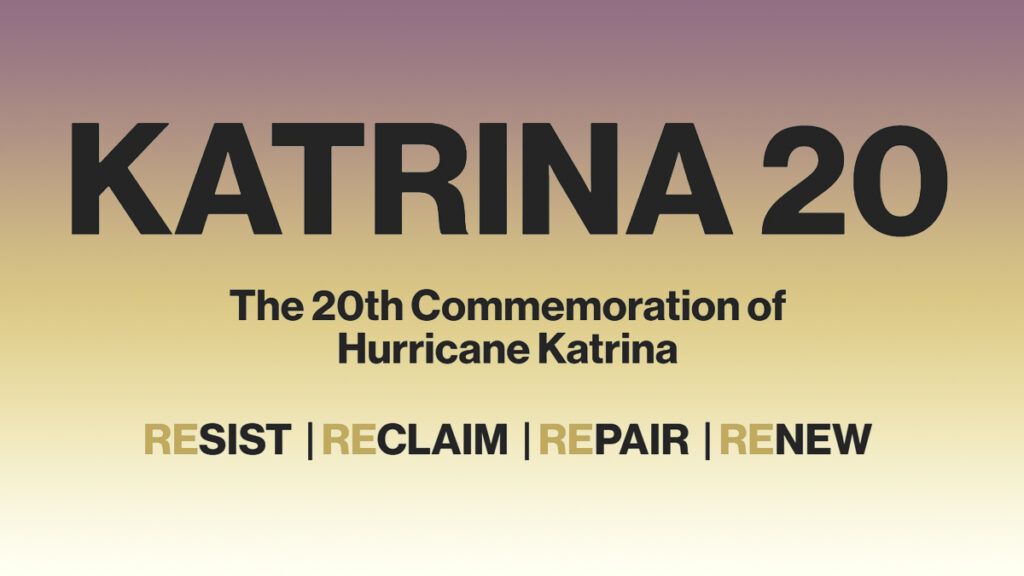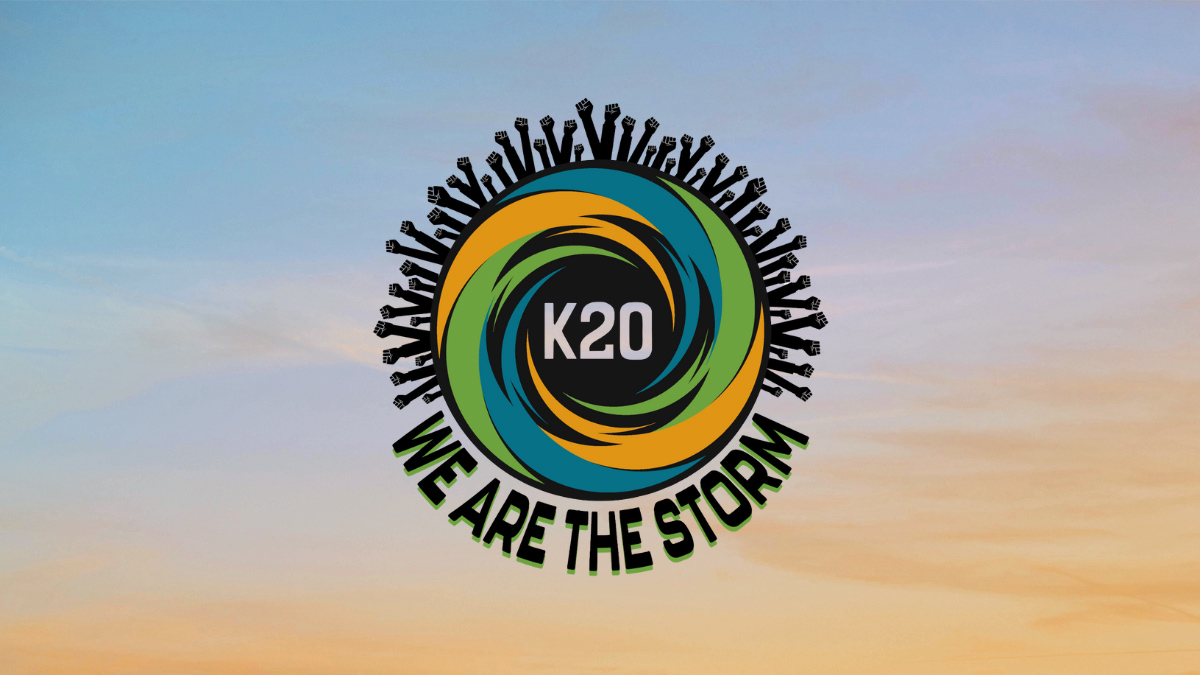Bioneers Newsletter 8.14.25 — 20 Years After Katrina: Still Rising, Still Resisting
Twenty years ago, Hurricane Katrina exposed the fault lines of American society: racial injustice, environmental neglect, economic abandonment, and government failure. It wasn’t just a natural disaster. It was a political one. And for many in the Gulf South, the aftermath never ended.
The hard truth is, the vulnerabilities Katrina revealed have never gone away. Recent cuts to FEMA, alongside the rising frequency and severity of climate-driven disasters, show how easily the failures of 2005 could be repeated. Without real investment in preparedness and equity, the next crisis will leave the same communities to bear the heaviest burdens.
But from the devastation of Katrina, a movement took root. One grounded in resistance, reclamation, and the radical act of staying—of returning, rebuilding, and reimagining what justice can look like in the face of ongoing crisis. In this issue, we reflect on the legacy of Katrina and uplift the organizers, leaders, and communities still fighting for a future defined not by survival alone, but by dignity, self-determination, and repair. From Colette Pichon Battle’s call for expansive climate justice to on-the-ground actions led by a coalition of local leaders and organizations, this anniversary is not just a moment of remembrance—it’s a renewed call to mobilize.
Want more news like this? Sign up for the Bioneers Pulse to receive the latest news from the Bioneers community straight to your inbox.

Colette Pichon Battle on the 20th Anniversary of Hurricane Katrina
Reflecting on the Past, Mobilizing for the Future
In the 20 years since Hurricane Katrina devastated the Gulf South, environmental justice leader Colette Pichon Battle has remained a fierce advocate for the communities it left behind. Born and raised in Bayou Liberty, Louisiana, Colette speaks powerfully to the racism, systemic neglect, and environmental mismanagement Katrina exposed—and the hard-earned lessons it continues to teach.
As the anniversary approaches, Colette calls for a more expansive, intersectional movement that recognizes the deep links between climate, gender, migration, and human rights. Only by addressing the root causes of injustice, she argues, can we reimagine a just and sustainable future.
- Watch Colette’s reflection on the 20th anniversary of Hurricane Katrina (2025)
- Hear Colette’s vision for expanding the climate justice movement (2024)

Katrina 20: How You Can Get Involved
Two decades later, the movement sparked by Hurricane Katrina is still growing, The Katrina 20 Week of Action (Aug. 24–31) is a chance to deepen our solidarity, uplift frontline voices, and take meaningful steps toward climate justice. Led by Taproot Earth and partners across the Gulf South, this year’s commemoration is rooted in resistance, repair, and the right to remain, return, and thrive.
Here’s how you can take action:
- Ride in Solidarity: Join the Katrina 20: Impact Ride from anywhere by walking, biking, kayaking, or rolling 7 miles in solidarity with Gulf South communities. This symbolic distance reflects the storm’s 144-mile path divided by 20. #RideTheStorm
- Attend an Event:
- In New Orleans: Join the Monarch Forum (Aug. 25–26), a two-day public convening on climate migration, cultural resilience, and human rights.
- In Gulfport, MS: The JTLN Fortify Clinic (Aug. 28) offers legal and financial resources for frontline organizers.
- In New Orleans: Join the Monarch Forum (Aug. 25–26), a two-day public convening on climate migration, cultural resilience, and human rights.
- Spread the Word: Share stories, join conversations, and amplify the ongoing fight for climate justice using #Katrina20 and #RideTheStorm.
Explore all events and actions at Taproot Earth
More Resources: Resilience, Policy, and Local Action
For those looking to dig deeper into how communities are building resilience and advancing climate justice in the face of systemic challenges, these resources offer in-depth analysis and actionable strategies:
- New Orleans, 20 Years After Katrina: A research series from Brookings Metro and The Data Center explores how New Orleans has changed since Katrina—and what work still lies ahead. Topics include housing, civic engagement, infrastructure, environmental justice, and more.
- Staying the Course: Local Climate Justice in an Era of Federal Rollbacks: This policy memo from Urban Ocean Lab outlines five actionable strategies for U.S. coastal cities to sustain and scale local climate justice efforts—despite cuts to federal support.
These resources are especially valuable for policymakers, planners, advocates, and funders working to align local action with long-term climate justice goals.

Bioneers Learning Course Spotlight — Fierce Vulnerability: Healing from Trauma, Emerging through Collapse
How can we create change that heals, not harms? In this four-week live course, activist and author Kazu Haga brings together nonviolent action, trauma healing, and spiritual practice to help us transform social movements from the inside out. Learn tools for building connection-based activism and responding to injustice with both courage and care.
